“Why does everyone seem to be talking about divorce on Facebook?”
“That’s because the [Absolute] Divorce Bill has just passed its third reading [in the House of Representatives.]”
“Oh, I didn’t know that.”
“Now you do.”
I wonder how many times this conversation took place in the homes of Filipino couples over the past weeks. The walls of our own home heard it too.
In online discussions, the mood towards the subject is observably anticipatory, if not already triumphant. It makes me wonder: how close are we to seeing a Philippines that made divorce legal?
I reached out to my childhood friend Atty. Kevin Gaffud Villamor, Associate-Partner at Cruz Law Office in Echague, Isabela, and Part-time Professor at Northeastern College, Santiago City to discuss the most talked-about bill in the country recently.
Our conversation was informative, nostalgic, and moving. It also made me realize four reasons Filipino parents need to be involved in this kind of discussion.


I first asked him a very straightforward question: “The Absolute Divorce Bill passed its third reading. What does this mean?”
“A bill may originate either from the Senate or House of Representatives,” he responded, pointing me to the beginning. The beginning is always a good place to start.
“The Absolute Divorce Bill originated in the latter, with Human Rights lawyer and 1st District Representative of Albay Edcel Lagman as the main proponent. For a bill to become law, it will go through three readings in the House of Representatives and another three in the Senate. When the bill passes all these, it will then be forwarded to the desk of the President. This is how we observe check and balance. Now that it has passed the third reading in the Lower House, it will proceed to the readings in the Senate,” he patiently explains.
It sounded to me like we still have a long way to go. Atty. Kevin confirmed that it could still take years.
“But why do people sound like they’re already celebrating?” I asked.
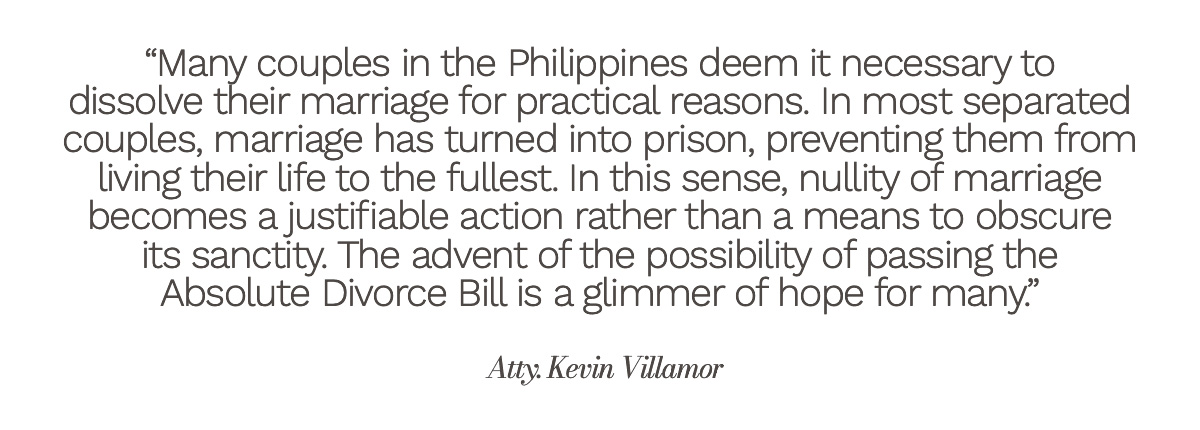

I then remembered our childhood days in Cavite. We were raised devout Catholics by our parents who would always bring us to Sunday masses and encourage us to participate in church activities. Before this conversation, we reconnected almost a year ago when I congratulated him for marrying the love of his life in a Catholic church wedding. At this point, I couldn’t help but ask his take on the divorce bill, to which he said he is in favor of.

Atty. Kevin further shared that while living a single life without the other half is bearable, a person cannot be forever free “without the formal and justifiable separation only granted by the proper judicial court.”
To paint a picture of what he means, he explained two scenarios: first is when a separated person applies for a personal loan, and second is when he or she gets a huge career opportunity. Both situations will not move forward because a “proof of marital affiliation” cannot be provided, for the other half has been absent for a very long time.


“So how is divorce different from annulment?” I asked him to explain in the simplest way possible.
“Not many people know this, but here in the Philippines, there are three ways marriage can be dissolved: declaration of nullity of marriage, annulment, and legal separation,” he explained their differences while also leading me to read and refer to The Family Code of the Philippines.
Here’s what I found out:
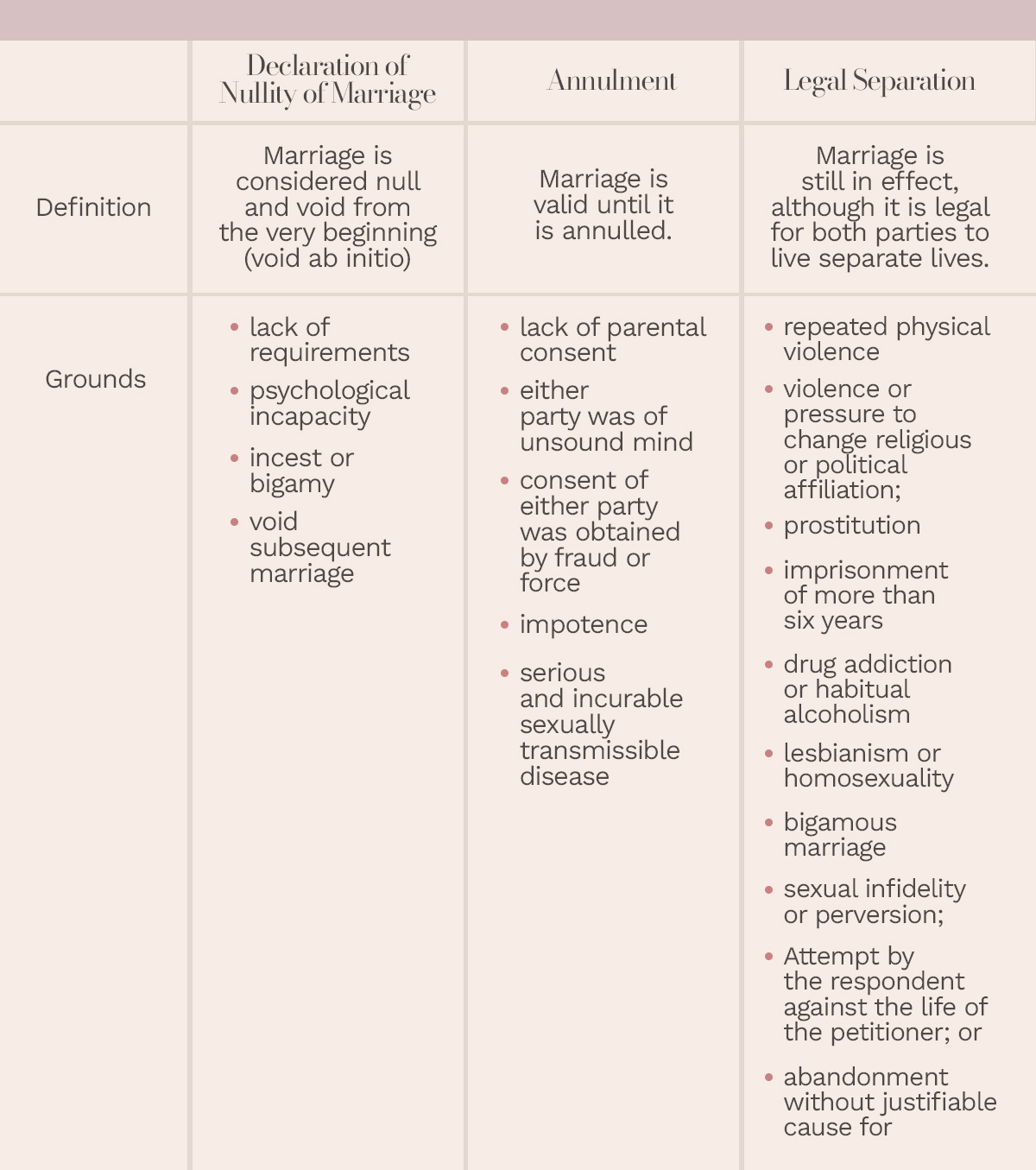
According to Atty. Kevin, the grounds for Absolute Divorce echo the same grounds for Legal Separation, with an additional ground called “irreconcilable differences.”
I asked, “How do you think the bill, if approved, will affect the way we raise our families?”
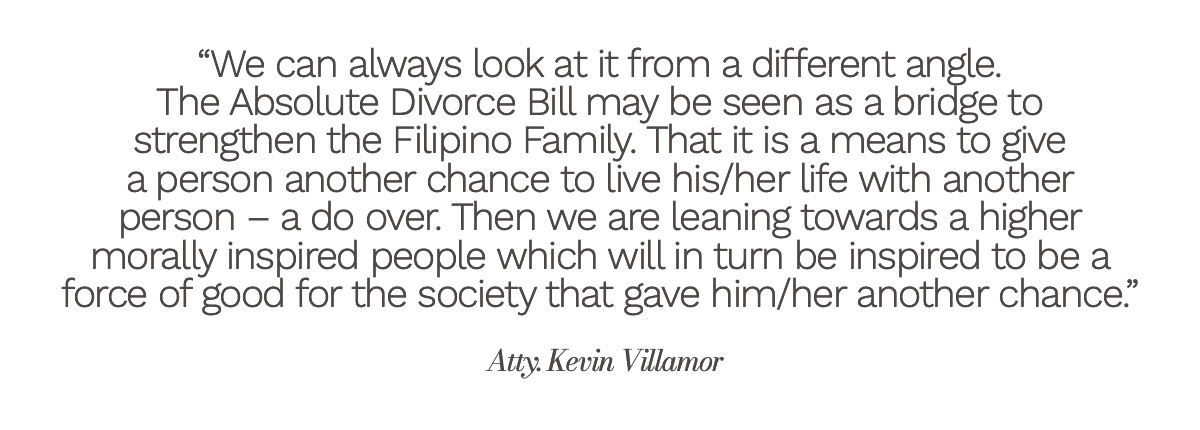
We’re almost at the end of our conversation, and I profusely thanked him for sharing his time and knowledge. I said I learned a lot from it. He then left me with something more to think about. 
Our call ended with so much insights, but I wanted to talk more about it.
So I asked my married friends for their take and insights.

Here are their thoughts about divorce and the Absolute Divorce Bill.
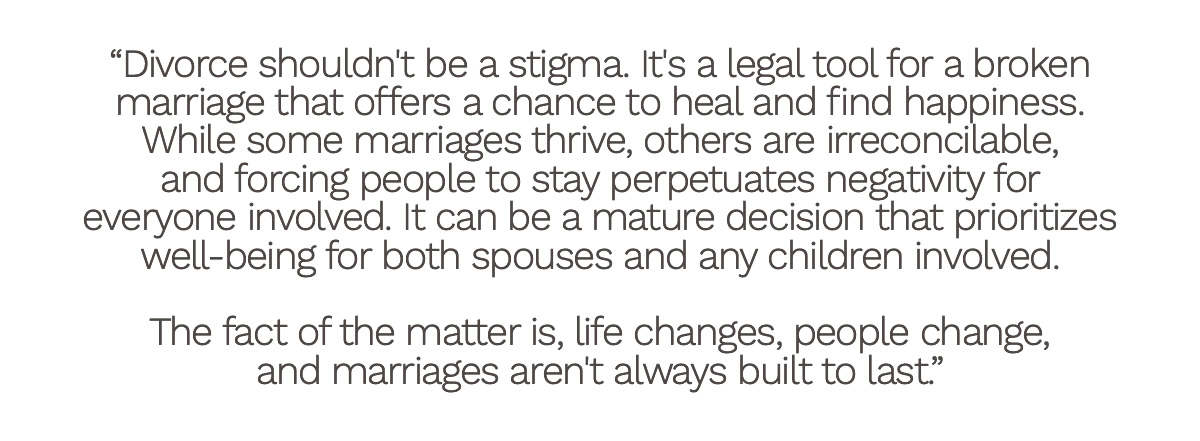
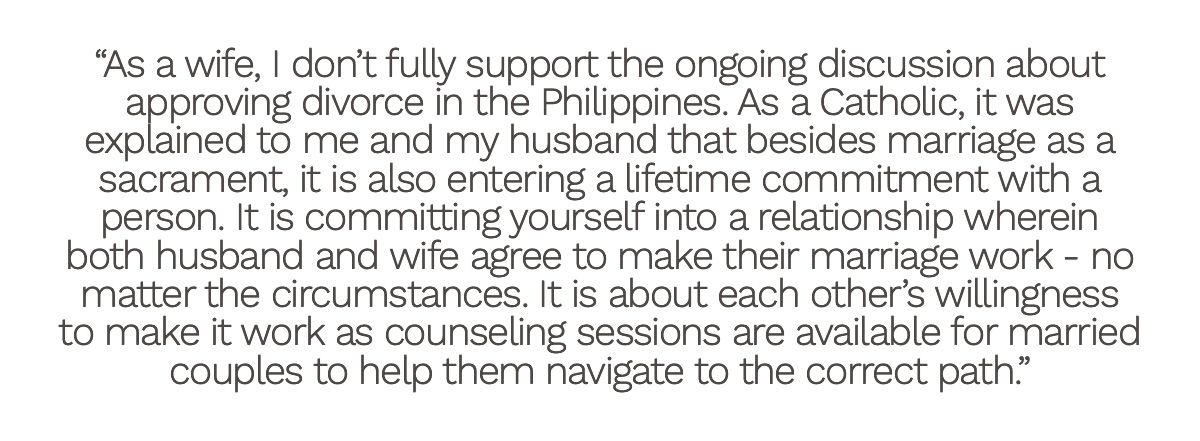
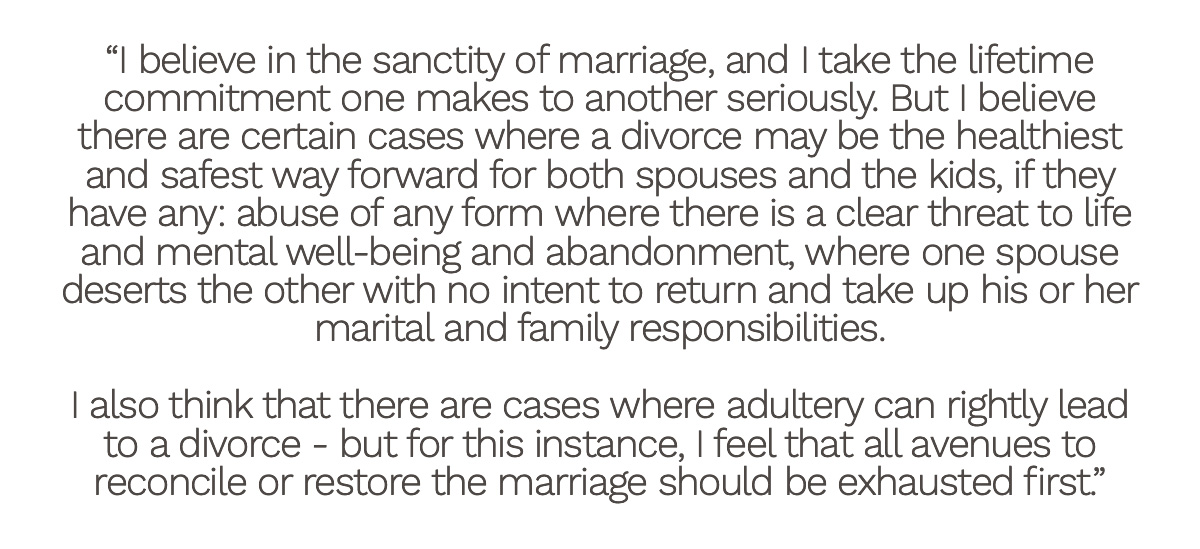
As we’re all waiting for what happens next, we need to keep the conversations going. This is so we’re all better equipped to explain to ourselves, our partners, and our kids our position on important national matters that involve the family, such as this.



